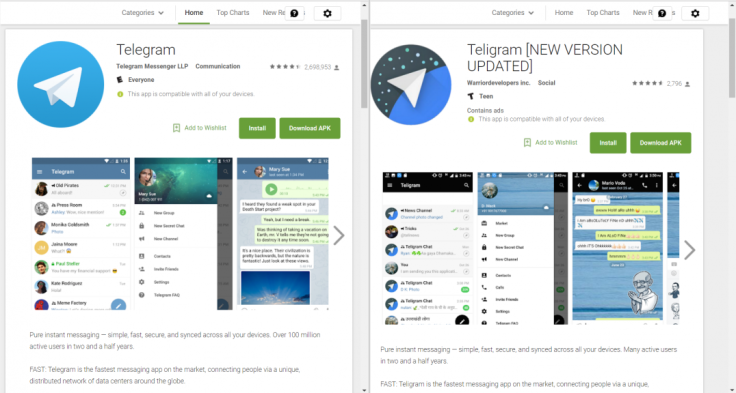Fake nude images of women being shared on Telegram messaging app
The fake nudes seem to have targeted under-aged females."suggesting that some users were primarily using the bot to generate and share paedophilic content."
More than 100,000 photos of women taken from social media have been digitally stripped of clothing to make them look naked and are being shared online. According to a report by intelligence company Sensitivity, the fake nude images have been spreading through the messaging app Telegram, and seem to have targeted under-aged females.
The intelligence company said the clothing worn by these women in the photos were digitally removed by Artificial Intelligence using "deepfake bot" technology. Deepfakes are computer-generated images and videos which are based on real templates usually applied to create faked pornographic video clips of celebrities.
The AI-powered bot resides within a private channel on the Telegram messaging app where users can send a woman's photo and the bot digitally strips her clothes instantly, for free. While the BBC was able to test the app with several images of women who gave their consent, none of the results turned out to be realistic at all.
Those running the service were quick to respond saying it was merely for entertainment purposes. The administrator who requested not to be identified said that they go through the photos and if they see minors, they block the user from the app for good.
"I don't care that much. This is entertainment that does not carry violence. No one will blackmail anyone with this, since the quality is unrealistic", the administrator said.
However, Sensitivity's chief executive Giorgio Patrina said a private individual's public photos on social media accounts could make anyone an easy target. Their investigation has found some images that appeared underage, "suggesting that some users were primarily using the bot to generate and share paedophilic content."
The company added that the bot has had significant advertising on the Russian social media site VK. Survey data also showed that most users were from Russia and former USSR countries.
Between July 2019 and 2020, Sensitivity tracked 104,852 fake naked images shared publicly on the app.
In the US, the state of Virginia is one of the first places to outlaw deepfakes. However, the current UK law on deepfake images has caught much criticism for being inconsistent, out-of-date and confusing as it still does not have a specific offence. A review on the law surrounding this issue will take place with findings to be put on the table in 2021.

.
© Copyright IBTimes 2025. All rights reserved.



















